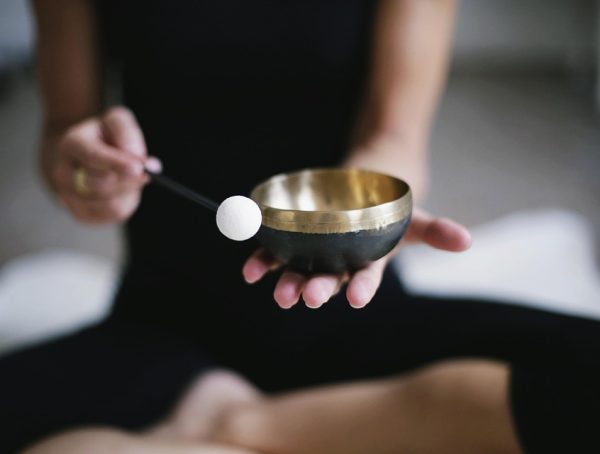Transcendental Meditation vs. Mindfulness: Which Is Right for You?
In our fast-paced, hyper-connected world, the need for mental clarity and emotional resilience has never been more critical. Many people seek to find calm amid the chaos, leading to the rise of popular meditation techniques like Transcendental Meditation (TM) and Mindfulness. Both offer unique benefits, but they differ in practice and philosophy. So, which one is right for you? Let’s explore both methods, their benefits, and actionable steps you can take to incorporate meditation into your life.
Understanding Transcendental Meditation (TM)
Transcendental Meditation is a technique developed by Maharishi Mahesh Yogi in the 1950s. The practice involves silently repeating a specific mantra for 15-20 minutes, twice a day, while sitting comfortably with the eyes closed. Unlike other meditation forms, TM does not focus on the breath or thoughts; the mantra serves as a vehicle to help individuals transcend their thoughts and reach a state of restful awareness.
Benefits of TM:
- Stress Reduction: Studies have shown that TM can significantly reduce stress and anxiety levels.
- Improved Focus: Regular practice enhances concentration and cognitive function.
- Greater Emotional Well-Being: Many practitioners report improvements in emotional health, including reductions in depression and anxiety.
- Self-Awareness and Clarity: Transcending ordinary thought patterns can lead to deeper insights about oneself.
Who Should Try TM?
If you’re looking for a structured, easy-to-follow meditation practice that allows you to go deeper into your consciousness and experience profound stillness, TM may be beneficial. The requirement of investing in learning the technique from a certified instructor may also appeal to those seeking a commitment to their practice.
Understanding Mindfulness
Mindfulness is the practice of being present in the moment and fully engaging with your surroundings, thoughts, and feelings without judgment. It has roots in Buddhist philosophy but has adapted into a mainstream practice in various therapeutic settings. You can practice mindfulness anywhere and at any time—during meditation, while eating, or even while walking.
Benefits of Mindfulness:
- Enhanced Awareness: Mindfulness cultivates a heightened awareness of thoughts and emotions, making you more attuned to your feelings.
- Stress Management: By focusing on the present, you can manage anxiety and stress more effectively.
- Improved Relationships: Mindfulness fosters better interpersonal skills, leading to more meaningful connections with others.
- Increased Resilience: Practicing mindfulness helps build resilience in the face of adversity and setbacks.
Who Should Try Mindfulness?
If you are looking for a versatile and accessible practice that allows you to incorporate meditation into your everyday life, mindfulness may be the right choice. It’s particularly beneficial for those who want to enhance their emotional intelligence and focus on their present moment experience.
Action Steps: Finding Your Path
Whether you are drawn to Transcendental Meditation or Mindfulness, both practices can offer significant mental and emotional health benefits. Here are some action steps to help you get started:
For Transcendental Meditation (TM):
- Find a Certified Teacher: TM requires one-on-one instruction from a certified teacher. Look for TM centers or workshops in your area.
- Set a Routine: Designate two specific times each day for your TM practice—typically morning and evening.
- Create a Comfortable Space: Find a quiet, comfortable place where you can practice uninterrupted.
- Practice Consistently: Aim to practice each session for 15-20 minutes. Use a timer to keep your practice consistent without constantly checking the clock.
For Mindfulness:
- Start with a Mindfulness App: Download popular mindfulness apps like Headspace or Calm to guide you through your practice.
- Incorporate Mindfulness into Daily Activities: Practice being present during mundane tasks like washing dishes or taking a shower. Focus entirely on the sensations and experiences of each activity.
- Attend Mindfulness Classes: Look for local classes that focus on mindfulness meditation or workshops to meet others on this journey.
- Keep a Mindfulness Journal: Document your thoughts and feelings to reflect on your daily experiences, enhancing your awareness over time.
Conclusion
Both Transcendental Meditation and Mindfulness offer valuable tools for enhancing mental clarity, emotional well-being, and stress management. The best choice ultimately depends on your personality, preferences, and lifestyle.
If you crave structure and a deeper experiential journey, TM may resonate with you. On the other hand, if you seek flexibility and a practice you can integrate into your daily life seamlessly, mindfulness is an excellent choice. Regardless of the path you choose, the most important thing is to start integrating meditation into your routine.
Remember, the journey is as important as the destination. As you explore your practice, embrace the growth and insights that come with it.
“Take care of your body. It’s the only place you have to live.” —Jim Rohn
If you found this article helpful, be sure to follow Kevin on Instagram (@KSteineman) for more insights on health, wellness, and personal development.
You might also like
More from Meditation
The Role of Mantras in Transcendental Meditation: A Deep Dive
The Role of Mantras in Transcendental Meditation: A Deep Dive Transcendental Meditation (TM) has garnered a significant following across the globe, …
The Science Behind Meditation: Improving Mental Health Naturally
The Science Behind Meditation: Improving Mental Health Naturally In today's fast-paced world, the pursuit of mental wellness has become paramount. Thousands …
Understanding the 7 Types of Meditation for Beginners
Understanding the 7 Types of Meditation for Beginners: A Path to Inner Peace Meditation has become a popular practice in recent …


































